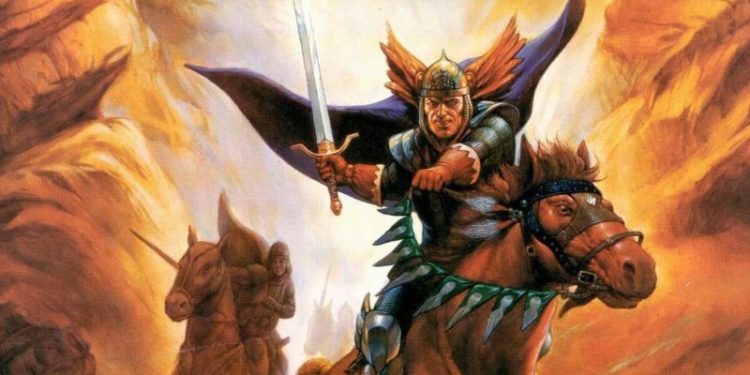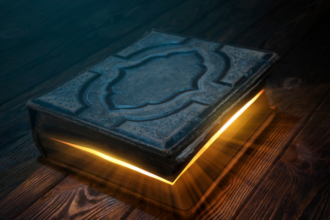Staying Connected to Your Character

I have what seems like hundreds of characters ready-made, eager to throw them into the next campaign I get to play in. But, often when it comes time to actually play these characters, they just don’t seem to gel. So, what do you do when you just can’t seem to connect with your character? And, when is it time to move on to a new character? I’ll try to answer some of those questions in today’s article.
Troubleshooting
The first step I would take would be to really try to identify the reason or reasons why a particular character is just not playing as well as you would like. There are often two general sources for this: being bored with the mechanics (or crunch), or being bored by the characterization (or fluff). Each can impact the other and often it is a combination of the two.
Mechanical Failures
Mechanical failures are when the game mechanics of the character fail to live up to the character concept developed as you made the character.
Mechanical failures most often include a concept where when theory crafting the character it seems cool, but in actual gameplay, you find it unsatisfying. It can also arise from the player not really knowing what part of the game they like the most, or feeling like their character just isn’t as effective in combat, or socialization, or exploration as the other characters. Not every character should be good at everything. In fact, it can be more rewarding to have a character with many weaknesses than one who is good at everything.
That said, you still want to try to find one role your character can fill competently.
How to address this includes:
- Narrowing and specifying what your character is good at
- Adapting your concept to be closer to something that works within your chosen class/race combo
- Creating your own homebrewed class/race/feat to make it work (with DM approval, of course)
Each of these should be done in concert with your Dungeon Master. They probably have some ideas of how they can help you come close to having your character play like how you would imagine. Sometimes a mechanical failure can be addressed through non-mechanics means. This is the difference between just saying “I hit it” every round as a fighter, and describing how your character masterfully wields their greatsword.
Character Disconnect
A character disconnect is when the player doesn’t vibe with the character on an emotional level. Somehow, the emotional attachment or emotional engagement just isn’t there. This can happen for a number of reasons but generally comes down to not have made enough specific choices about the character in order for the bond to be created. There is a lack of emotional stakes that mean that there is no feeling of risk when having to make a choice.
Generally you want to get as specific as possible with the following pieces of information:
- What does your character want more than anything in the world?
- What or who does your character hate?
- What or who does your character love?
- What would your character die for?
If no answers come immediately, it can help to explore their backstory a bit more. What bonds and attachments do they have? Is it only for their party? That’s fantastic because those people matter the most in terms of gameplay!
Ask your Dungeon Master for a chance to explore these questions in roleplay. What would your character do if what they loved was threatened? What would they do if they were given their dream? What would they give up if they had to sacrifice something they love?
How to Know When It Is Time To Change Characters
Knowing that your character just isn’t working isn’t the time to automatically retire it unless you are not having fun with it at all. If it is not fun, don’t do it. Life is short and campaigns shorter, so ultimately play what you have fun playing.
However, try exercising some patience to see if over a couple more sessions, with work done to help correct the mechanical failures or roleplay disconnect, you end up with a character you like. Your character is not a static creation, but changes over time. Let the events of a campaign change your character.
Personally, I have found I need to let go of the feeling of missing out on some level by not being able to cast spells as a powerful wizard AND be great at swinging a sword AND seduce everybody I meet. That’s why you have multiple games running so you can do all three in a week!
Each session is a chance to discover more about your character, to go deeper into the campaign if you let yourself be taken on that journey.
Preventing Disconnection
In order to prevent disconnection from occurring in the first place, do the following:
- Ask your DM if the campaign will be combat-heavy or roleplay-heavy. This will help you know where to start; either with a mechanically satisfying character or with deep characterization. If it’s a combination of both, then pick a class, or a concept and start with that. Also, if you prefer one over the other let your DM know how you like to play the game.
- Read, watch, and play media that features fantasy and sci-fi themes. Steal character types from your favorite media. What would Buffy the Vampire Slayer in Waterdeep look like?
- Use session zero to get a feel for where your character lies in the party dynamic and their attachment to each other. Bonds are a great place to really discover who your character really is, by learning what they hold dear.
Hopefully, these tips can help you assess what you may need to change about a character, or what to do before creating a new one for the next campaign.
Art is from the 2nd edition players handbook, via WoTC.



